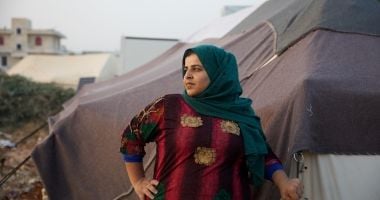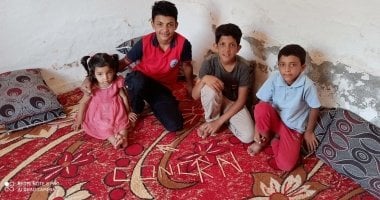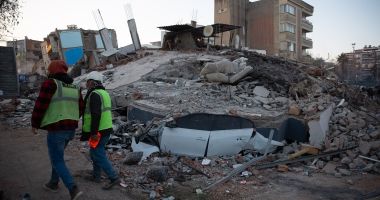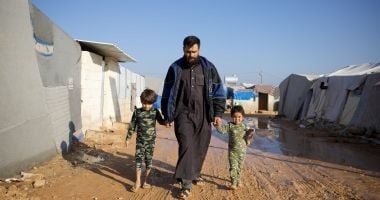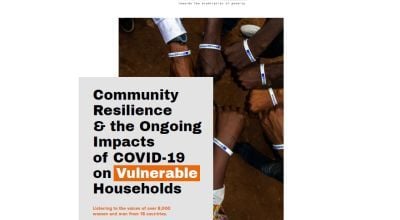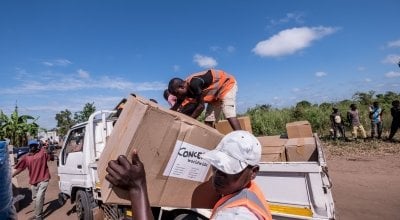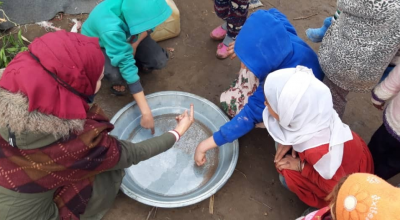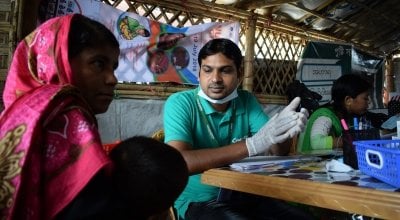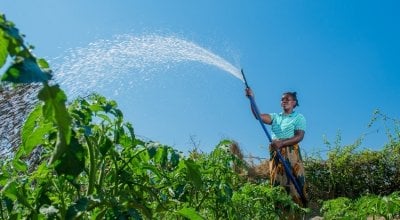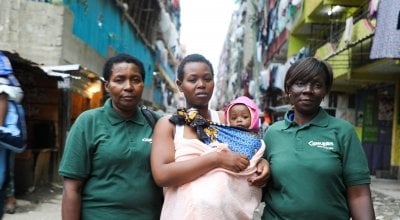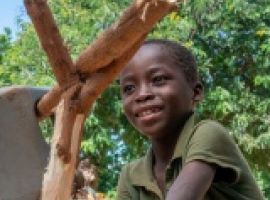
Read our 2022 annual report

Knowledge Hub
Why are we in Syria? Protracted conflict has led to destroyed infrastructure, lost education, vulnerability to natural disasters and disease, and mass displacement. Since 2013, Concern’s programmes in Syria have been helping those affected by this crisis, as well as addressing the needs of new emergencies. This includes responding to cholera outbreaks, flooding, and the devastating February 2023 earthquake. We also support Syrian refugee communities in Iraq, Lebanon, and Türkiye.
Syria is both the world’s largest refugee and internal displacement crisis
Since the onset of its civil war in 2011, Syria has become the source of the world’s largest refugee population, as well as the largest group of internally-displaced persons (IDPs). Over 60% of the country’s pre-war population have been uprooted, with over 5 million displaced abroad (mainly in neighbouring countries like Türkiye, Lebanon, Jordan, and Iraq). Inside Syria, there are over 7 million people who have been forced to leave their homes — many multiple times over. The humanitarian need remains high and extends beyond displaced Syrians, with 16.7 million people in the country requiring assistance in 2024.
The ongoing violence has all but eliminated Syria’s middle class, destroyed infrastructure (especially water and sanitation), driven high inflation rates, led to multiple generations missing out on their primary educations, and created a hunger crisis for over 12 million Syrians. While peace is long overdue, it also won’t spell the end of the crisis.
Latest achievements
Earthquake response
The 2023 earthquake in Syria and Türkiye impacted an estimated 16 million people across both countries, with more than 55,000 lives lost and nearly 130,000 people injured. Concern continues to support people impacted by the earthquake with shelter items, food assistance, water, sanitation, and hygiene (WASH), and protection services.
Cash assistance
Education support



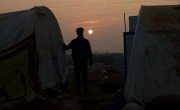
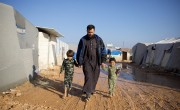

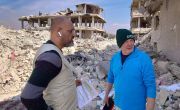

How we're helping in Syria
We are working hard to alleviate suffering in Syria. We are doing this by delivering a multi-sectoral package of support that includes emergency response, education, and water, sanitation, and hygiene (WASH) services.
Latest from Syria

Other ways to help
Corporate support
Is your company interested in working together for a common cause?
Fundraise for Concern
From mountain trekking to marathon running, cake sales to table quizzes, there are lots of ways you can support our work.
Buy a gift
With an extensive range of alternative gifts, we have something to suit everybody.
Leave a gift in your will
Leave the world a better place with a life-changing legacy.
Volunteer with Concern
The lots of ways to get involved with our work as a volunteer
School fundraising
Without the generous support from schools, we wouldn't be able to do the work that we do.


